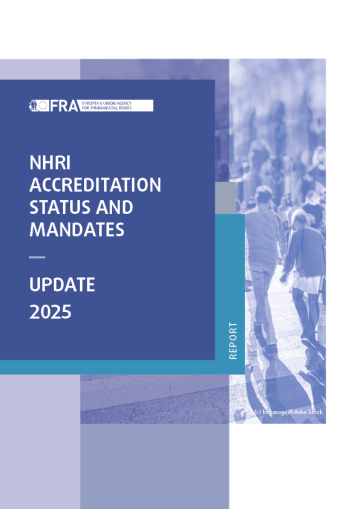Help us make the FRA website better for you!
Take part in a one-to-one session and help us improve the FRA website. It will take about 30 minutes of your time.
Apoyo a los regímenes y a las personas que defienden los derechos humanos
Highlights
- Report / Paper / Summary11October2021This report proposes a framework for becoming, and functioning as, a ‘human rights city’ in the EU. It includes ‘foundations’, ‘structures’ and ‘tools’ for mayors, local administrations and grassroots organisations to reinforce fundamental rights locally. It is based on existing good practice and expert input by representatives of human rights cities in the EU, academic experts, international organisations and city networks.
- PageThe European Union Fundamental Rights Information System EFRIS is a Human Rights Gateway, bringing together data and information from existing human rights databases, and enables viewing and analysis of relevant assessments of fundamental rights in the EU.
- Report / Paper / Summary18January2018Civil society organisations in the European Union play a crucial role in promoting fundamental rights, but it has become harder for them to do so – due to both legal and practical restrictions. This report looks at the different types and patterns of challenges faced by civil society organisations working on human rights in the EU.
- Handbook / Guide / Manual23October2018En efecto, la Carta se percibe a priori como un catálogo muy innovador al incorporar numerosos derechos no incluidos en otras cartas de derechos ya consolidadas. Normalmente, quienes se encuentren familiarizados con los principios básicos del Derecho de la Unión recordarán enseguida que la Carta vincula en todo momento a la UE y que únicamente vincula a los Estados miembros cuando «apliquen el Derecho de la Unión». Pero ¿qué significan en realidad estos términos del artículo 51 de la Carta, que tan a menudo se citan?




















